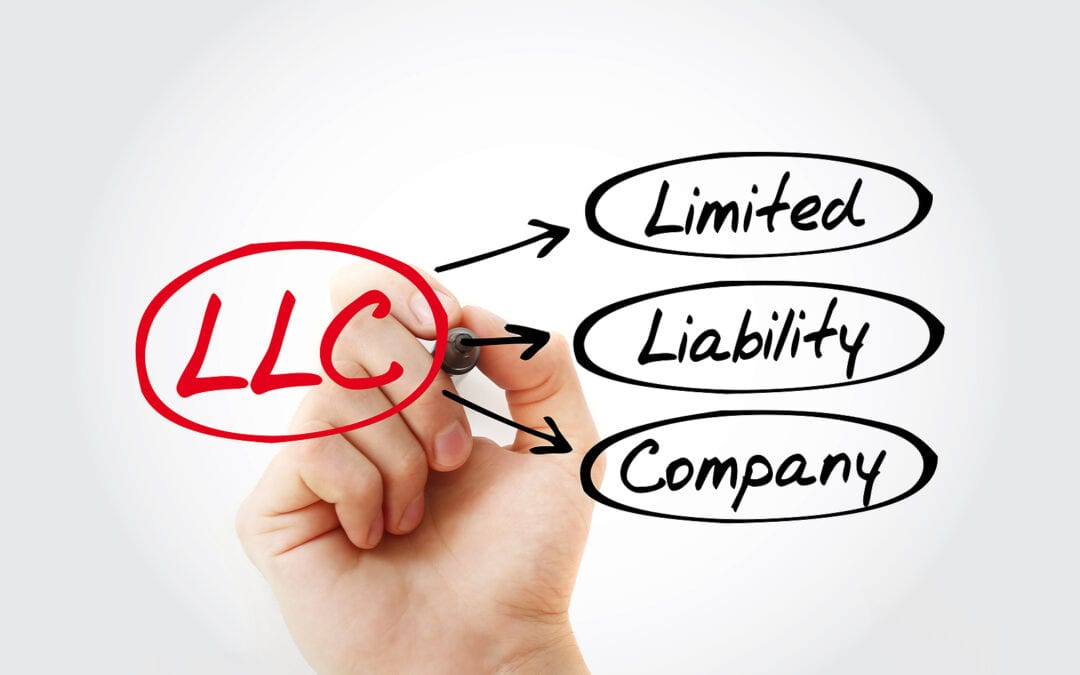The most common advice a new business owner hears is, “you really should form an LLC”. You may ask in reply, “do I really need an LLC to do business?” No, but there are benefits to operating under an LLC structure that you may not know about.
The main advantages of a business set up as an LLC are limited liability for members, ease of management, and pass-through taxation where profits of the business are not taxed at the business level, but “passed through” to business owners tax return. The LLC business owner pays any taxes owed to the IRS.
Liability Protections Afforded LLCs
An LLC shields its members from being liable for the debts of the entity. Because of the shield, a member legally does not have to remit payment from their personal funds or assets for the debts of the business.
The limited liability of an LLC does have exclusions. A person might be liable for debts and liabilities if any of the following is the case:
- A person is hurt by a member or managing member.
- A member directly signs for a business debt or loan as a personal guarantor and the LLC defaults on it.
- Taxes withheld from employee wages are not deposited with the IRS.
- Purposeful illegal, irresponsible, or falsified actions that injure the LLC or other parties.
- Comingling personal funds and business funds by using a personal checking account for the LLC. This can pierce the corporate veil and potentially allow creditors to seek remedy against the individual members’ personal assets.
Ease of Management
An LLC requires few legal documents. and the compliance documentation mandates are not nearly as difficult. Forming an LLC is a simple, relatively painless process, which makes it easy to maintain the entity in good standing.
An LLC does not require a board of directors nor regular board meetings. Because of this, an LLC also does not need board approval to take any business actions.
An LLC can also apply for and build business credit that is not contingent upon the members’ personal credit. Most states do require that the LLC be registered with the state.
Tax Benefits of LLCs
For tax purposes, an LLC is not legally viewed as its own entity, but as a pass-through entity. Taxation is different for each LLC, dependent on how many members the LLC has.
A single Member LLC is formed with one member, who owns 100% of the business. The single-member LLC is reported on the member’s 1040 on Schedule C and it is taxed like a sole proprietorship.
A multi-member LLC is when the LLC is formed with more than one owner. The IRS automatically defaults a multi-member LLC to partnership status. The LLC files a Form 1065, U.S. Return of Partnership Income. The net profit of the LLC is then passed through to the members individual 1040 returns, using the Form K-1.
Both single member LLCs and multi-member LLCs can elect to be treated as a corporation (often referred to a “C-corp”), which then allows them to also file for S-Corporation (called S-Corp) treatment if they wish. Both C-corps and S-corps have unique tax benefits and business owners should meet with their accountant before automatically electing either status, to determine the best choice for the business.
Whether you’re just starting out in business and need helping getting started, or you’re an established business looking for increased tax savings, The Becerra Group is here to help. Call us at 505-462-9090 (NM) or 830-254-4708 (TX), or click here and complete our online contact form.

